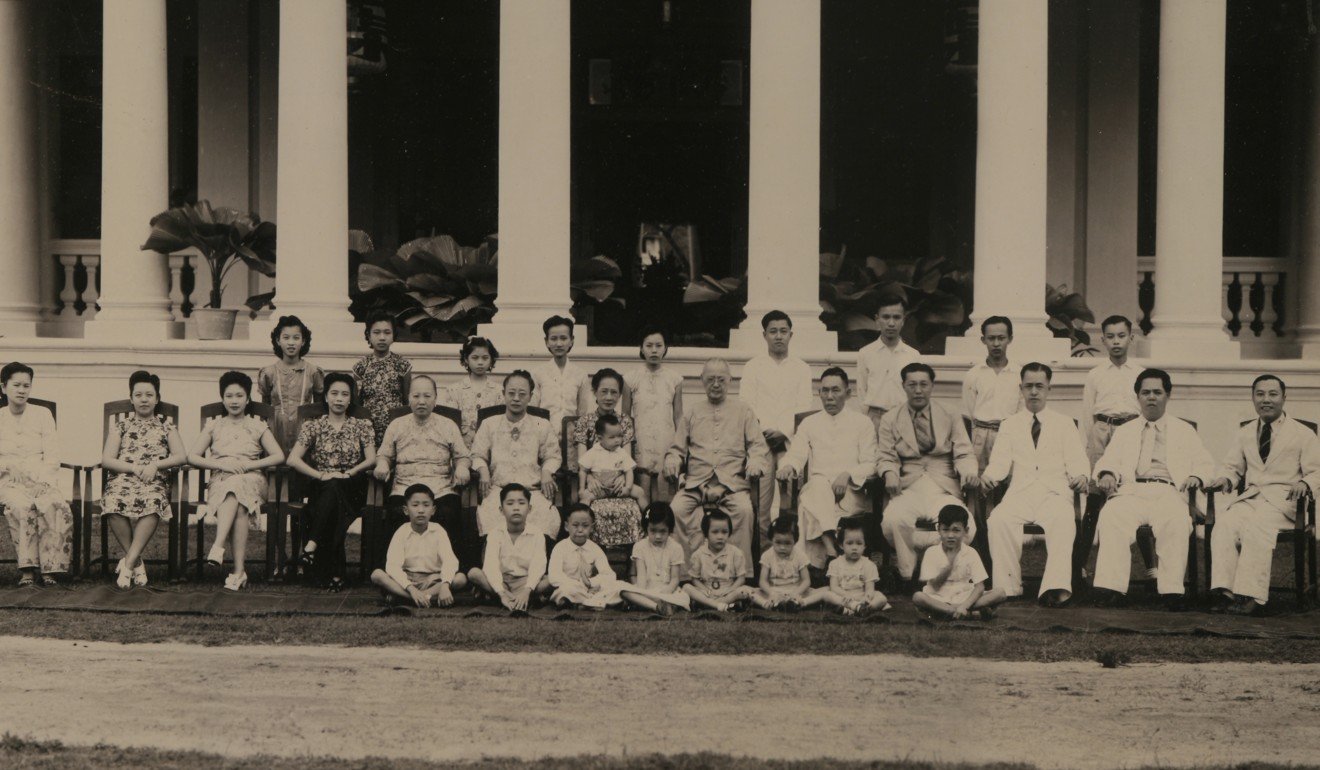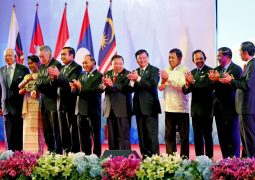The King’s Chinese: how Penang’s ‘Grand Old Man’ Yeap Chor Ee went from penniless barber to one of Asia’s richest men

- Chinese migrant Yeap Chor Ee became one of Malaya’s most prominent men
- His story is being told for the first time by his great-granddaughter
Topic | Malaysia
Zoe Low
When Yeap Chor Ee left his hometown in southern China in 1885 to seek his fortune in Southeast Asia – then known as Nanyang, or the southern seas – he was just one of 125,000 people fleeing a land struck by famine and rebellion. By the time of his death in May 1952, Yeap had become one of the most prominent men in pre-independence Malaya and the richest man in the northern state of Penang, his name synonymous with philanthropy and real estate.
The King’s Chinese , written by Yeap’s great-granddaughter Daryl Yeap, 49, traces the tale of Penang’s “Grand Old Man”, from his start as a penniless, illiterate barber to one of the most successful tycoons in Asia, against the backdrop of migration and the birth of a nation.
“I thought it would make more sense to write about the whole community rather than just one man, so the book is about the story of the Straits Chinese, using my great-grandfather as a vehicle,” Yeap said.
The book details the life of Yeap Chor Ee, from his marriages – one wife back in China to look after the ancestral home, and three in Penang, who combined would have 10 children – to his early days as an itinerant barber saving money to start Ban Hin Lee, his first shop with his business partner Oei Tiong Ham, another prominent Chinese businessman
from Indonesia As his business boomed and his wealth grew, Yeap started Ban Hin Lee Bank in 1918, the first locally owned bank in Penang to serve the Chinese community. Along with other locally incorporated banks, it was the precursor to a stable financial structure for Malaya.
In 2000, under a government-initiated banking consolidation plan, Ban Hin Lee Bank was acquired by Southern Bank. The latter then merged with several other banks to form the CIMB Group, which today operates mainly in Malaysia, Singapore, Indonesia and Thailand.
The King’s Chinese also paints a picture of Penang society during the late 19th century. The port town, first colonised by Captain Francis Light for the British East India Company , was a “free for all, cowboy town”, Yeap said.
Chinese migrants began to congregate en masse on the island after the United States implemented the Chinese Exclusion Act in 1882.
“It had an open economy where anyone could open a business. There was no standardised currency, people were trading with Mexican, Peruvian, Japanese currency,” she said.
This wave of migrants became the basis of what Penang is today, with a majority Chinese population on the island side of the state, and a majority Malay population in Seberang Prai on the Malaysian Peninsula.
Men worked in whatever jobs they were skilled at, many as indentured labourers, until they could pay off their passage from China. Women were less fortunate, Daryl Yeap said. Only 2 per cent of the new migrants were women, some as young as 10 sold by their parents or kidnapped to become prostitutes in Penang and elsewhere.
If the girls contracted a disease, the pimp would lose money, and the girls were to blame Daryl Yeap
Regulations to protect women were scarce, with only the 1888 Women and Girls Protection Ordinance setting the age of consent at 10, which was raised to 13 three years later.
“If the girls contracted a disease, the pimp would lose money, and the girls were to blame,” said Yeap.
“The rules were always being changed to suit men.”
The fate of migrant women was especially alarming when contrasted with that of Yeap Chor Ee’s fourth and youngest wife, Lee Cheng Kin, Yeap said. Lee was educated, rare for women of the time, and in her elder years was fondly called “the old lady”.
At first, Lee was reluctant to marry Yeap Chor Ee, 30 years her senior, but soon became his assistant due to her ability to read. She eventually became the matriarch of the Yeap clan and looked after both the business and the household. “Considering that [before] Chor Ee died he made her chairwoman of the bank and passed the household to her, and the extremely chauvinist Yeap ‘Kongsi’ [clan house] made her the chairwoman, it was a big difference [to other women],” she said.
As Yeap Chor Ee approached 80 years of age, his estate, including property and banking assets, was estimated to be worth 100 million Malayan dollars, the equivalent of US$463 million today.
The implementation of estate duty by the British government in 1940 to fund the Second World War caused great panic among rich Straits Chinese, whose large coffers would have been a huge windfall for the colonial government.
In response, Yeap set up two trusts, one of which would leave the family home in Penang, Homestead, and other properties to charity, and the other to provide for his descendants. He also donated 250,000 Malayan dollars to set up the University of Malaya, the first higher education establishment to have university status in the country.
Homestead, a mansion by the sea along the northeast coast of Penang island, was entrusted to an education foundation in 2006 and is now the campus of the Wawasan Open University.
But the extent of his charity work remained unknown to the rest of the family until his great-granddaughter Yeap started researching the book in 2008. While her research took 11 years to complete and included trips to Singapore, Britain, China and even Myanmar, where Yeap Chor Ee owned a rice mill, Yeap said she was excited every time she unearthed new information.
Among these was the discovery of a letter written by Tan Cheng Lock, one of the founders of the Malaysian Chinese Association and a fellow businessman and friend of Yeap Chor Ee, to his wife Lee.
“Dear Madam Cheng Kin,” Tan wrote. “What I am writing now to you must be kept absolutely secret … I have spoken to the government about giving him some token of appreciation by government of his services to the country,” the letter said.
But the award never came as the High Commissioner of Malaya, Henry Gurney, was assassinated by communist insurgents on October 6, 1951, the same day Tan spoke with him about Yeap. Yeap himself died eight months later, and Lee never brought the matter up.
“None of the family members knew about this until I discovered the letter in the archives of the Institute of Southeast Asian Studies library in Singapore,” Yeap said.
Yeap, who is now working on a second book, about Oei Tiong Ham, Yeap Chor Ee’s business partner and the “sugar king of Asia”, and his daughters (one of whom flew a plane even before Amelia Earheart), said she hoped the book would help people understand the history of human migration.
“Migration has been happening for centuries, people migrate everywhere, and if you can make good in a place, I don’t see a problem.” ■
The King’s Chinese can be found online at Gerakbudaya, Popular Bookstore and Kinokuniya, at RM55.
South China Morning Post
- Previous Cambodia ‘playing with fire’ by cosying up to China, says opposition figure Sam Rainsy
- Next Joy in Jordan as Amman reclaims enclaves formerly annexed by Israel
















